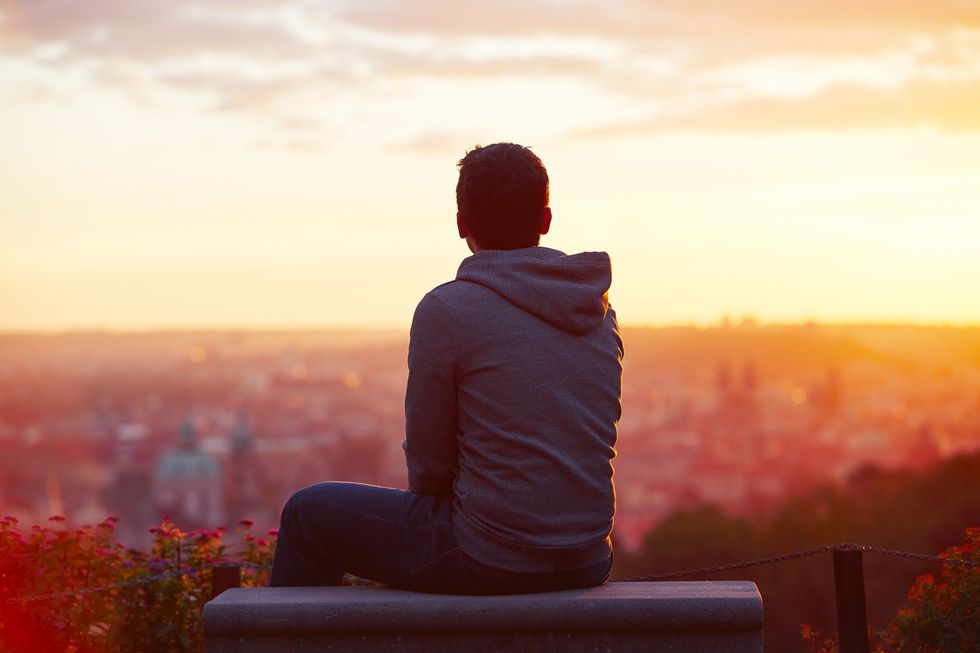Can you recall the last time you were alone with your thoughts, without any distractions in the form of music, podcasts, friends, social media or family? Or does the thought of being stuck with your thoughts terrify you?
Humans have long stigmatized solitude. It has been considered an inconvenience, something to avoid, a punishment, a realm of loners. Humans are social creatures and socializing comes easy. Solitude is another matter. Solitude runs counter to the demands of society. Science has often aligned it with negative outcomes. Freud, who linked solitude with anxiety, noted that "in children, the first phobias relating to situations are those of darkness and solitude." But increasingly scientists are approaching solitude as something that, when pursued by choice, can prove therapeutic.
This is especially true in times of personal turbulence when the instinct is often for people to reach outside of themselves for support. When we are experiencing a crisis it's not always just about us: It's about how we are in society. Instead, when people take these moments to explore their solitude, not only will they be forced to confront who they are, they just might learn a little bit about how to out-maneuver some of the toxicity that surrounds them in a social setting.
Despite social biases against solitude and introverted personality traits, many find that spending time alone can be an enjoyable thing — and in fact, those who enjoy purposeful solitude have been shown to experience cognitive benefits including enhanced concentration and productivity. Day-to-day responsibilities and commitments can make your to-do list seem as if it has no end. This constant motion prevents you from engaging in deep thought, which inhibits creativity and lessens productivity. Solitude can be restorative and can bolster creation. Anyone who has done something worthwhile has spent time alone. Creative work and introspection and deep thoughts tend to come when we allow ourselves space and that tends to happen when we are alone.
Solitude gives you an opportunity to discover yourself and find your own voice. When you're part of a group, you're more likely to go along with what the group is doing or thinking, which aren't always the actions you would take or the decisions you would make if you were on your own. Being by yourself provides time for you to think deeply. It helps you work through problems more effectively. It's hard to think of effective solutions to problems when you're distracted by incoming information, regardless of whether that information is electronic or human.
Solitude can enhance the quality of your relationships with others. By spending time with yourself and gaining a better understanding of who you are and what you desire in life, you're more likely to make better choices about who you want to be around. You also may come to appreciate your relationships more after you've spent some time alone.
Some people feel guilty about taking time for themselves. They see themselves as the one who should be taking care of everyone else, and their needs often fall by the wayside. However, taking time out for yourself is something that you should never feel guilty about. It not only models healthy behavior for the ones you love, but it also keeps you happy, healthy, and strong so that you can continue doing what fulfills you; and if that's taking care of others, then you're in an even better position to do that.
Once you begin making time for yourself, don't be surprised if you don't run into a little resistance from those in your life who are used to you always being available. Don't let their resistance stop you. Reassure these people that you're still there for them, but in order to be there for them over the long haul, you also have to also take care of yourself. Just as they've grown accustomed to you always being there for them, they'll get accustomed to you taking time for yourself.
Solitude for me means awareness. Awareness of being alive, awareness of the power my mind has, awareness of my how deeds affect my life and people living around me. Solitude happens when you know how to live with yourself only when you get obsessed with your thoughts when you get to know yourself when you do not pretend and be truly you.
Solitude is the soul's holiday, an opportunity to stop doing for others and to surprise and delight ourselves instead. This quote by Bell Hooks sums it all up perfectly, "Knowing how to be solitary is central to the art of loving. When we can be alone, we can be with others without using them as a means of escape."

















